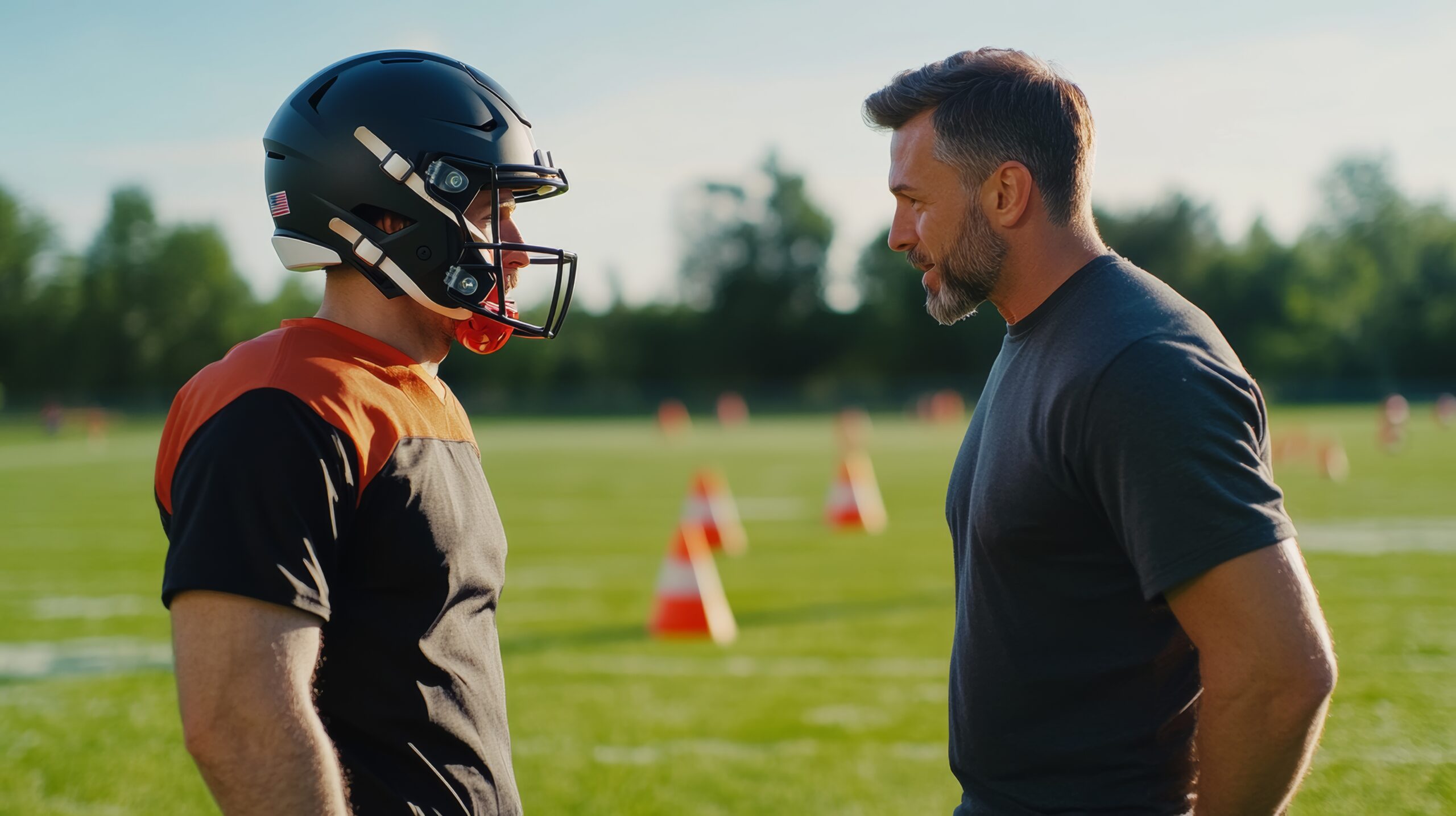By Mitch Seaworth
When most people think about coaching, they picture a field, a court, or a diamond, whistles blowing, and players running drills. While those things are certainly part of it, the truth is that coaching goes far beyond plays and statistics. Over the years, coaching has shown me that being a mentor is just as important as teaching a proper swing or solid defense. Sports have a unique way of shaping character, instilling values, and creating lifelong lessons—and coaches play a huge role in guiding that process.
I’ve been fortunate to coach baseball, basketball, and even football through internships, volunteer and paid positions, and each experience has taught me how much impact a mentor can have. It’s not always obvious in the moment, but the lessons you teach, the encouragement you offer, and the example you set often resonate long after the final whistle.
Leadership Starts With Example
One of the first lessons I’ve learned as a coach is that leadership isn’t about yelling the loudest or calling every play. It’s about setting an example. Athletes pay attention to more than just your instructions—they watch how you handle mistakes, how you treat teammates, and how you respond under pressure.
When I coach, I try to model the behavior I hope to see: patience, respect, and a strong work ethic. Whether it’s showing up early for practice, encouraging a struggling player, or admitting when I’m wrong, these actions teach more than words ever could. It’s easy to think that coaching is only about sports, but the reality is that every interaction is a chance to model leadership and integrity.
Teaching Life Skills Through Sports
Sports are more than games—they’re opportunities to teach life skills. Discipline, responsibility, teamwork, resilience, and problem-solving are all things that come naturally in a team environment. But they don’t just appear on their own. A coach has to guide athletes through challenges, help them understand the importance of commitment, and show them how to handle both wins and losses with grace.
I’ve seen countless moments where a sports lesson translates into life. A player who learns to focus on a difficult drill can apply that same concentration to schoolwork. A team that learns to communicate on the field can build stronger friendships off it. Sports give mentors a unique platform to teach these skills in a setting where effort and persistence are immediately visible.
Encouragement Matters
One of the most important tools a coach has is encouragement. I’ve worked with athletes who were unsure of themselves or hesitant to try something new. Sometimes, a bit of positive reinforcement can change everything. Telling a player, “I believe in you,” or celebrating a small accomplishment can boost confidence and inspire growth far beyond the game itself.
Encouragement doesn’t just improve performance—it builds self-esteem, fosters a sense of belonging, and teaches athletes that someone sees their effort and believes in their potential. That lesson often extends beyond sports, shaping how they approach life’s challenges.
Building Relationships That Last
Coaching also creates opportunities for meaningful relationships. Over the years, I’ve stayed in touch with players long after the season ended. Seeing them as confident, responsible adults is one of the most rewarding parts of coaching. These relationships are built on trust, respect, and shared experiences—and they show that mentorship isn’t limited to the field.
Even brief interactions, like helping a player work through a tough practice or giving advice during a game, can leave a lasting impression. From playing and coaching, I’ve learned that sometimes what an athlete remembers most isn’t the score of a game, but the way their coach believed in them when they didn’t believe in themselves.
The Coach as a Role Model
Being a mentor means more than teaching skills—it means being someone that athletes can look up to. Coaches influence attitudes, behaviors, and perspectives. A positive, supportive coach can inspire players to set goals, work hard, and strive to be their best. Conversely, negative experiences can leave lasting impressions as well. That’s why I always approach coaching with positivity and intention, knowing that my actions and words can shape the way that athlete sees themselves and the world.
Lessons That Extend Beyond the Field
Ultimately, the lessons athletes learn under the guidance of a mentor don’t stay on the field. They become part of the person they grow into—helping them navigate school, work, friendships, and challenges in life. Sports are a microcosm of life itself, full of wins, losses, successes, failures, and the hard work in between. As a coach, being able to guide someone through that microcosm is both an honor and a responsibility.
Final Thoughts
Coaching is about much more than the sport. It’s about shaping athletes through example, encouragement, and guidance. The skills, values, and confidence that athletes gain from a positive mentor carry far beyond the field. They learn to work hard, support others, and navigate challenges with resilience and integrity.
Every practice, game, and conversation is an opportunity to make a difference. Being a coach has shown me that the impact we have as mentors can last a lifetime. It’s a role that requires patience, dedication, and care, but the rewards are immeasurable.
For me, coaching isn’t just about baseball, basketball, or football—it’s about helping people become their best selves. And that, to me, is the true value of mentorship in sports.
